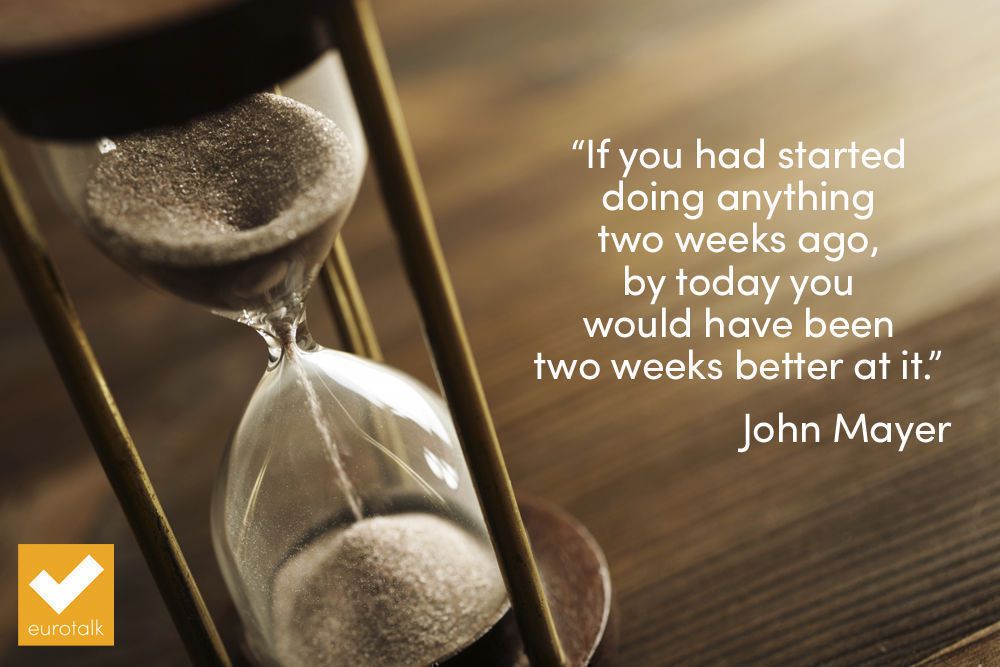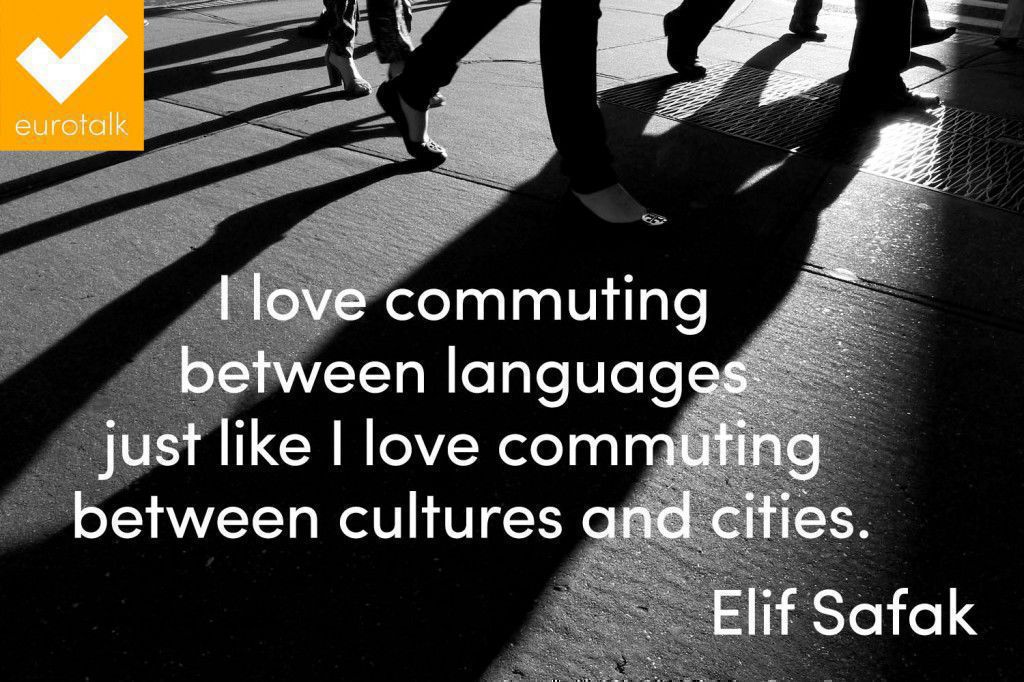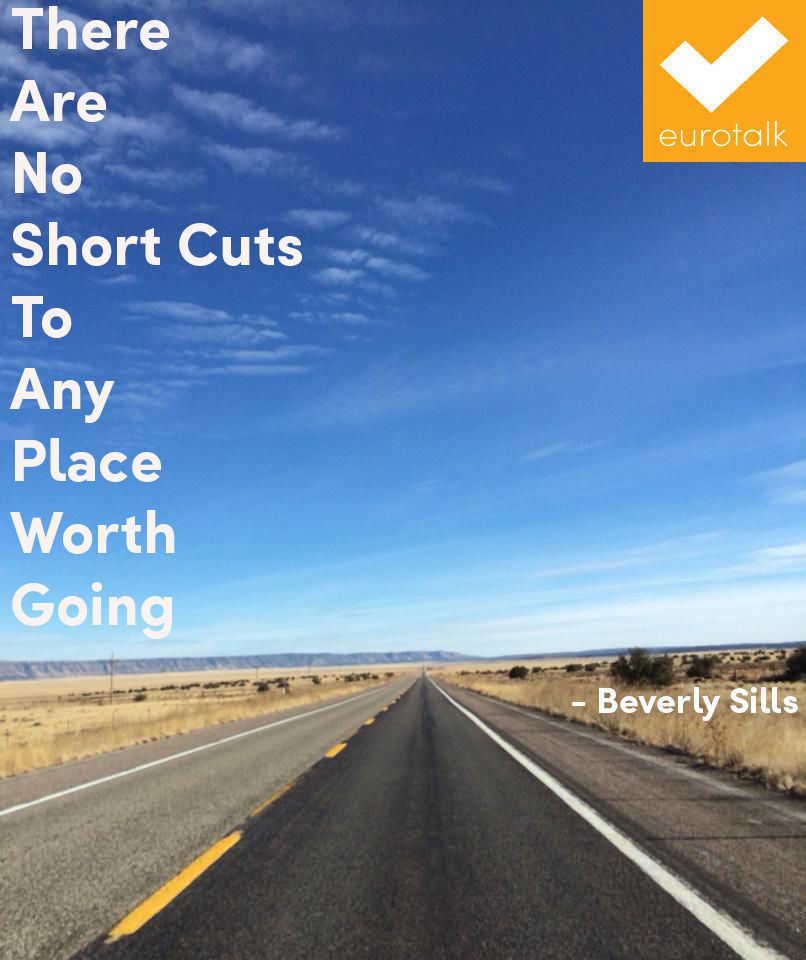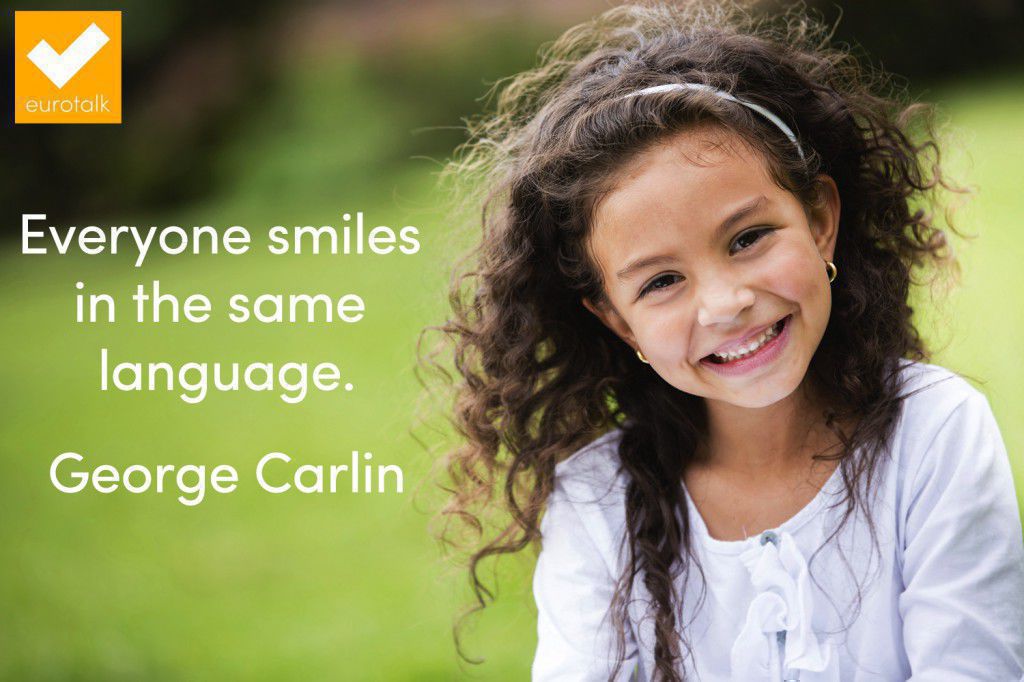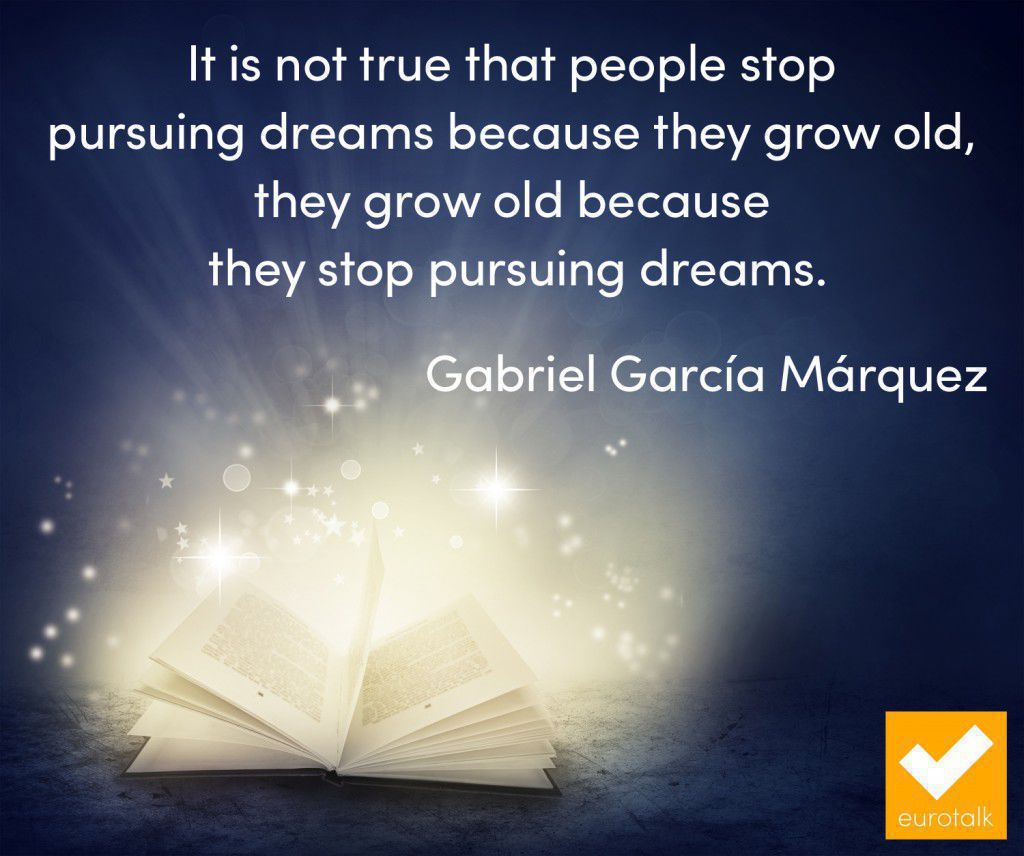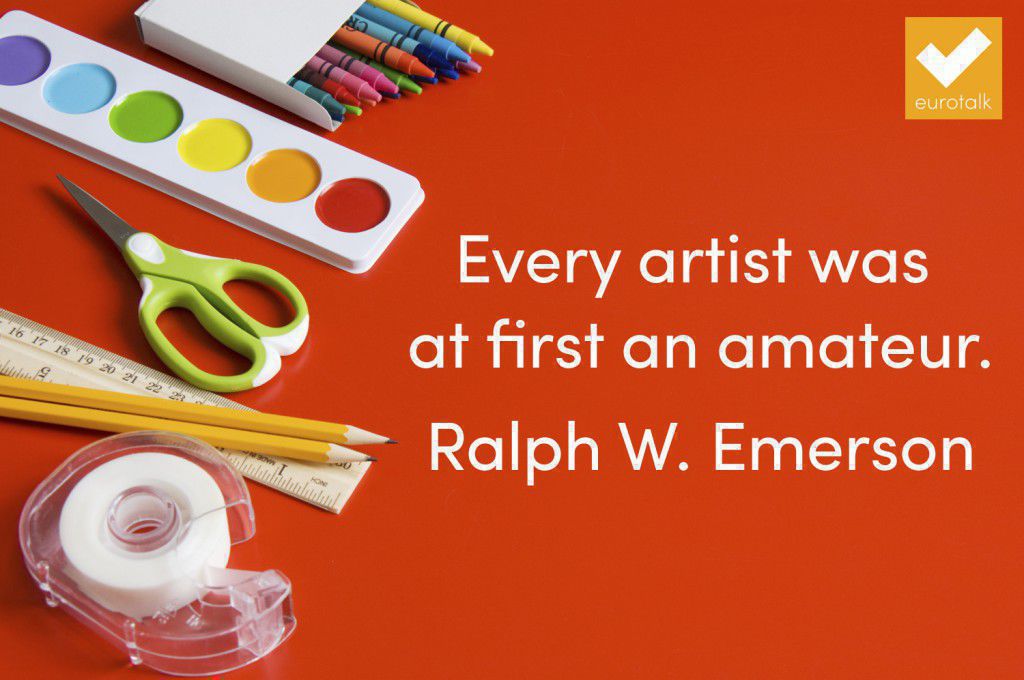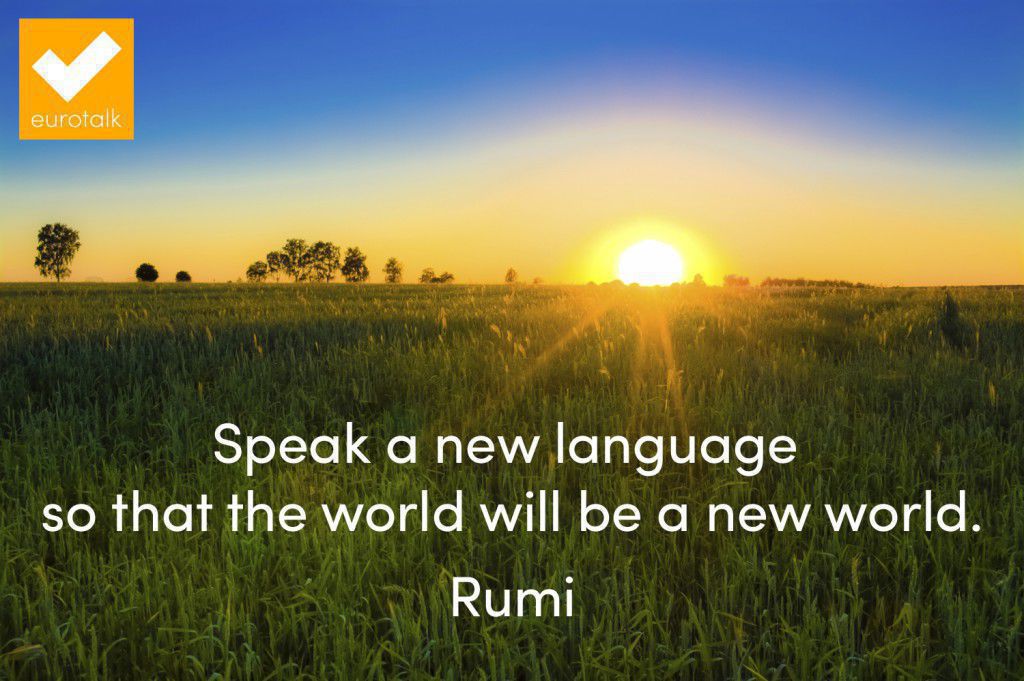The benefits of being multilingual
Today, we’re welcoming back EuroTalk blogger Kirsty with some of the biggest benefits of learning other languages.
How has knowing more than one language helped you? Let us know in the comments!
1. It makes you cleverer
It has long been thought that learning another language, and being competent at it, indicates a high level of intelligence in individuals. Recently this has been proven, with studies on bilingual children showing they were much more developed than their peers, as well as a similar link being drawn between the results of teenagers at school and being able to speak two languages. This means your language learning is actually making you smarter!
2. It can prevent ageing and disease
 People who study an additional language have also been shown to have ‘younger’ brains than would be expected for their age. Cognitive ability, or how effective your brain is at functioning, is much higher in people over sixty that can speak two languages than those who can only speak one. Essentially language learning can prevent the likelihood of forgetfulness and ‘getting slower’ in old age. Learning a second language can also make your brain more resistant to diseases such as dementia and Alzheimer’s. A study conducted on a group of elderly people who spoke both Spanish and English demonstrated that they typically developed symptoms of Alzheimer’s much later than those who only spoke English. Who knew that learning a language might actually be able to prolong your memory and your life?
People who study an additional language have also been shown to have ‘younger’ brains than would be expected for their age. Cognitive ability, or how effective your brain is at functioning, is much higher in people over sixty that can speak two languages than those who can only speak one. Essentially language learning can prevent the likelihood of forgetfulness and ‘getting slower’ in old age. Learning a second language can also make your brain more resistant to diseases such as dementia and Alzheimer’s. A study conducted on a group of elderly people who spoke both Spanish and English demonstrated that they typically developed symptoms of Alzheimer’s much later than those who only spoke English. Who knew that learning a language might actually be able to prolong your memory and your life?
3. It allows you to explore more of the world
Alongside the multiple health benefits of language learning, speaking a second language also allows people to explore the world in a different way. Whilst anyone can visit a country it is the people who can speak the language who truly experience the culture. Basic competency in the language makes the locals more open to helping you and maybe even pointing you in the direction of the best places to visit away from the tourist hot spots. It is these ‘little gems’ that will be the part you remember most from your holiday, from the little hidden coffee shop in Rome to the underground bar in Paris.
4. It opens up new opportunities
There are six million people on earth, so why limit yourself by only speaking one language? New friends don’t just have to come from the same town, or even country, as you live in, but can come from all over the world. The easiest way to gain new friends across the world is to get a pen pal, and in the internet age you don’t even have to pay for stamps! There are lots of good websites that will set you up with a pen pal that speaks the language you’re learning, so why not put your new found language skills to use, make friends and learn even more.
What benefits of learning a second language have you discovered? Let us know!
Kirsty
7 ways to stay motivated in your language learning
So we’re now a few weeks into 2015, and chances are all the resolutions we made in a fit of great excitement on January 1st are a dim and distant memory. If one of your goals for this year is to learn a new language, here are a few tips to help you stick at it, even when real life gets in the way, and your motivation starts to fade…
Make it fun
You’re far more likely to learn if you’re enjoying yourself. Of course, the best way to pick up a language is to take a trip to the country where they speak it, but that’s not an option for most of us, particularly so soon after the expense of Christmas! So instead, get yourself an app like uTalk or pick up some Flashsticks to post up all over your house (and office, and car…). Or if you’re on a budget, make up your own game. There is no right way of learning a language, and everyone’s different – but wouldn’t you rather be having fun while you study than poring over a grammar book trying to memorise verb endings?
Make it a competition
I’m currently learning German, and know for a fact I wouldn’t be if it weren’t for the uTalk challenge. I don’t really need to learn German – I’m not going to Germany in the immediate future, nor do I have a German mother-in-law to impress – but I fancied trying something new and different. The problem with learning a language just for fun, though, is that it’s very easy to give up without a pressing reason to keep going. The uTalk challenge gave me that reason; I’m a very competitive person, and I wasn’t about to let my colleagues beat me (well, except Nat, who destroyed us all). Knowing that I had to come into work each morning and update my score on the board has kept me motivated, and as a result I now know probably several hundred new words that I didn’t know before.
Focus on the end goal
While there are many people who, like me, decide to learn a language just for the fun of it, there are many more who do it for a specific reason. So if you feel your enthusiasm starting to wane, focus not on learning the language, but on what it’ll mean when you’ve learnt it. Maybe it’s a new job, a new relationship or a forthcoming trip. If you concentrate on what you’re getting from knowing a new language, suddenly putting the time in to study won’t seem nearly such a chore.
Reward yourself regularly
Remembering your ultimate goal is important, but that can sometimes seem far, far away. If you were about to climb Everest and didn’t plan to stop till you got to the summit, you’d probably never start (and who could blame you). So make sure you set yourself achievable ‘in-between’ goals, and reward yourself appropriately when you get there. Personally, I find chocolate to be an excellent incentive. Or you could allow yourself an episode of your favourite TV show, or a shopping trip. Whatever works for you and will keep you motivated to press on.
Set aside time
Life can be incredibly busy, and often it feels like there isn’t enough time to do everything, so learning a language can slip down the to-do list behind other, more pressing tasks. To combat this argument, try setting aside a fixed amount of time each day, or a few times a week, which is only for language learning. Where that time fits into the rest of your schedule is up to you, but the important thing is that nothing else gets in the way. And if you can make use of ‘dead time’ like your daily commute, so much the better – that way you’re not using up hours that would ordinarily be used for other jobs.
Tell other people
I’m a great believer in this one. Tell friends and family that you’re learning a language, and chances are at some point, they’re going to ask you how it’s going. And if they don’t, ask them to. If I know that at any moment someone’s going to demand that I say something in another language, I’m much more likely to keep learning it, just in case. (Of course, when they do ask me to say something, my mind will instantly go blank – but that’s another story.)
Don’t give up, even if you slip up
As with any goal, there are going to be pitfalls along the way. You’d have to be incredibly determined (and slightly superhuman) to never have an off-day or consider giving up. And that’s ok, but the important thing is to pick yourself up after this wobble and keep going. Knowing you’ve overcome a few obstacles is only going to make the moment you have your first conversation in another language that much sweeter, because after all…
Good luck (or should I say Viel Glück)!
Liz
Inspiring quotes for language learners
As you’ll know if you follow us on Facebook or Twitter, each week we share a quote that we think is particularly helpful or inspiring. So for today’s blog post, we’ve collected together a few of our favourites, to help motivate and encourage anyone learning a language. Feel free to share any that grab you.
You’ll find more of our weekly quotes on Pinterest and We Heart It. And if you have a quote you think we should share, please let us know!
6 great language learning blogs to visit in 2015
So how’s everyone’s 2015 going? We hope your year has got off to a great start, and that your new year’s resolutions are all still intact…?
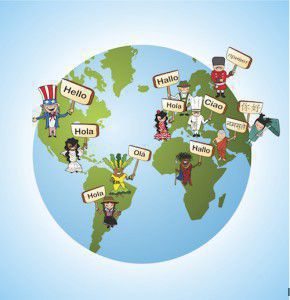 We’d like to start the year by thanking you all for reading our blog. With a bit of luck, at some point over the last couple of years it’s inspired you, made you smile or just entertained you for a few minutes. We love sharing our thoughts on languages and everything connected to them (sometimes fairly tenuously connected!) so please do keep coming back. Remember, you can subscribe by email to get all our posts delivered straight to your inbox 🙂 And as always, we love hearing from anyone who’d like to be a guest blogger, or with suggestions on topics you’d like to see covered.
We’d like to start the year by thanking you all for reading our blog. With a bit of luck, at some point over the last couple of years it’s inspired you, made you smile or just entertained you for a few minutes. We love sharing our thoughts on languages and everything connected to them (sometimes fairly tenuously connected!) so please do keep coming back. Remember, you can subscribe by email to get all our posts delivered straight to your inbox 🙂 And as always, we love hearing from anyone who’d like to be a guest blogger, or with suggestions on topics you’d like to see covered.
But today we wanted to share with you a few other fantastic language learning blogs that we’ve discovered, which are full of great suggestions, advice and ideas. Please share your own favourites with us in the comments, and we’ll add the best ones to our list!
FlashSticks is a UK-based company with a simple yet ingenious idea – vocabulary flashcards on colour-coded sticky notes. Their Sticky Blog is a treasure trove of fantastic articles written by the FlashSticks team, who clearly know a thing or two about learning languages. They also have a really fun and friendly Twitter account, so they’re well worth a follow there too.
We recommend: 6 tips for getting out of a language learning rut
Lindsay Dow is a language fan who’s also an English tutor. Her blog is a great mix of written articles and videos, and includes learning advice as well as lots about language in popular culture like movies and music. Right now, Lindsay’s running a fantastic photo challenge over on Instagram, which looks like a lot of fun and a great way to learn.
We recommend: 82 British TV shows to help with your English
Sam Gendreau, the polyglot behind this great language site, is passionate about helping other people learn a language. His blog is full of useful and interesting articles, perfect for those with a language addiction or just a passing interest. We challenge anyone to visit Lingholic and not come away feeling inspired and encouraged.
We recommend: Ten amazing reasons why you should learn a foreign language
Ok, so we’re a bit biased because the author of this blog is a former EuroTalker. But that doesn’t change the fact that it’s a great site. As a self-pronounced language geek and freelance translator, she really knows her stuff. Visit the blog for tips and advice for language learners, translators… and anyone interested in how to be British.
We recommend: Don’t be scared… How to get talking in your foreign language
Probably most people already know this blog, as its creator, Benny the Irish Polyglot, is pretty famous these days. Benny is the perfect example of someone who struggled with languages at school but has since fallen in love with them. Since 2003, he’s been travelling the world, learning new languages (in three months) and sharing his experiences and advice.
We recommend: How to make a New Year’s Resolution and actually keep it
Not a language learning blog as such, but so much fun. James is an illustrator from the UK who draws fantastic pictures all based on languages from around the world. His collection includes everything from how to sound like a monkey in different languages to literal translations of the titles of popular TV shows. Be warned though, you may find it hard to drag yourself away.
We recommend: The sounds of the New Year
There are lots more fantastic language blogs out there, so please don’t be offended if we didn’t mention yours this time…
Enjoy!
The importance of Body Language when learning a new language
Today we’re happy to welcome back Izabella Klein, who spent some time with us last year while she was translating the onebillion maths apps into Brazilian Portuguese. Izabella’s new post focuses on a language we all speak, even if we don’t realise it…
Starting next year I will go back to teaching English as a second language. In the meantime I am recalling all the grammar points, reminding myself what to do in a classroom, as well as emphasising the key points when learning a new language. During this process, I thought of myself as a linguist constantly studying new languages: either technical languages or a new language spoken elsewhere in the world.
This moment of reflection and remembrance made me realise in a more mature way how body language is not only important in daily conversation, but it is the ‘real universal language’, since it is the only language that in fact everyone in the world can use. So, it becomes really important when learning/teaching a new language. I would say it is the first key to follow into teaching any new language.
 For instance, how do we recognise body language? Probably when we realise when someone is sad or happy, thrilled or devastated just by their faces and body movements. So body language is when we can interpret without a word being said – only by our eyes observing someone using body language. Old black and white movies are great examples when we notice how they used much more body language than movies nowadays. No sound, no words, all they had were scenarios, costumes and body language to make people laugh or cry.
For instance, how do we recognise body language? Probably when we realise when someone is sad or happy, thrilled or devastated just by their faces and body movements. So body language is when we can interpret without a word being said – only by our eyes observing someone using body language. Old black and white movies are great examples when we notice how they used much more body language than movies nowadays. No sound, no words, all they had were scenarios, costumes and body language to make people laugh or cry.
Now think of an international film festival you’ve been to, or just any foreign movie you’ve watched one day, in a language you either don’t speak at all or at which you are still basic or intermediate level. If you got tired of reading the subtitles, or you’re a language geek like me, always trying to understand what people say even if it’s an unknown language, you had to go with ‘trying to figure it out’ by listening to the sound of the words said by the characters and observing the body language they were using while saying it.
So don’t go taking any conclusion in advance, thinking you will not be able to understand anything at all, just because you don’t speak the language. Relax and watch the movie, observe what the characters do. I bet you will understand more than you imagine and you will learn even if only a little bit of that language.
Meeting foreign people in person and socialising with them is also a great opportunity of observing and learning a new language and culture. We have such opportunities when we travel abroad, have a foreign friend coming over, when we chat with a friend via Skype or similar, or when we have a language teacher.
But if you don’t have those at the moment but you still want to learn, multimedias are really efficient not only for entertainment, but for education purposes as well. We are able to observe images, while we listen and even read. We use both our eyes and our ears; these senses, at the same time connected and alert, increase learning possibilities. And we see not only scenarios and costumes that help identify cultural aspects. We also see body language as a key to trying to figure out what is being said or even really understand what is being said, together with words that might sound familiar due to having the same linguistic routes as another language you already learnt.
Did you ever have a language teacher trying to introduce some new vocabulary in class, acting like a drama teacher, using a lot of mimes and weird sounds trying to make you understand the meaning of the new words? She was not just acting CRAZY, she was trying to make you learn like babies do, by observing. So, pay attention to body language, it will definitely help you learn other languages. As for me, I will probably take drama classes to help me improve my body language skills in class…
Izabella Klein








